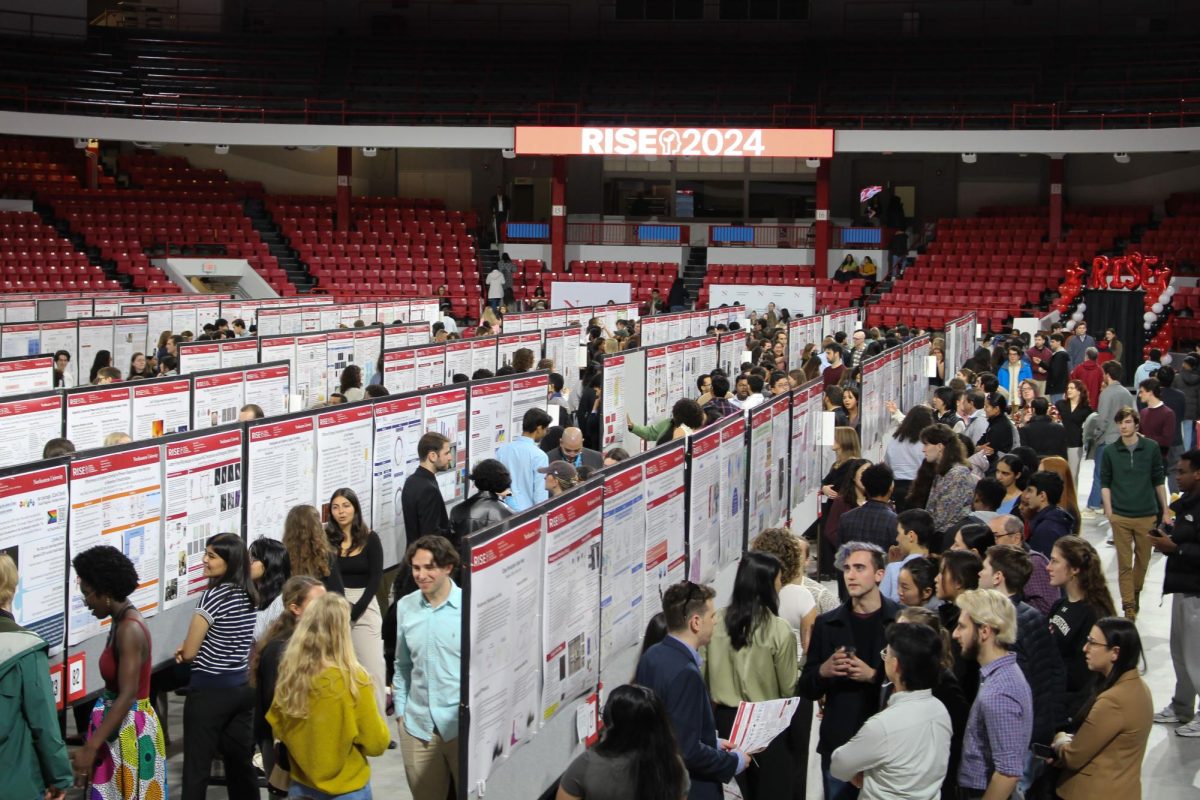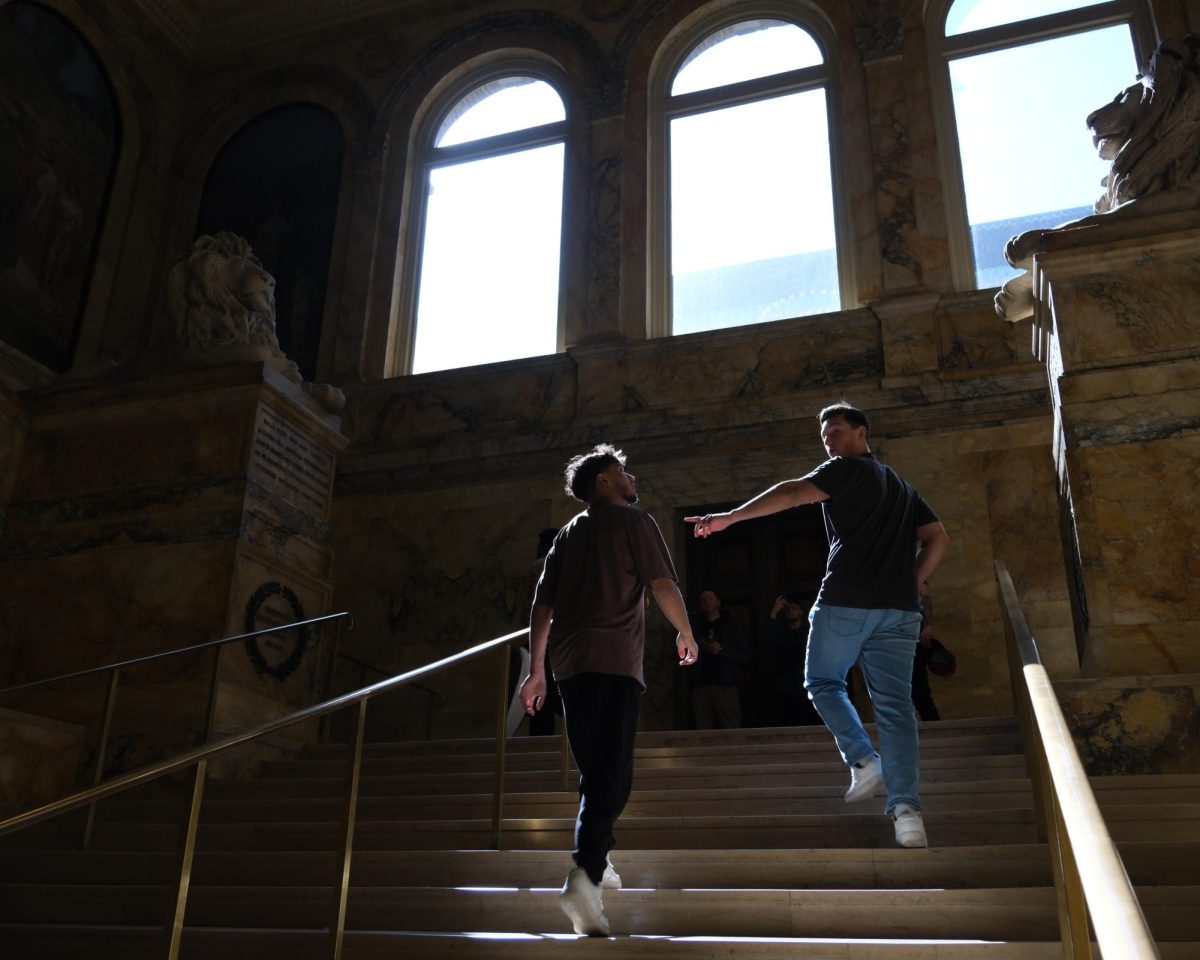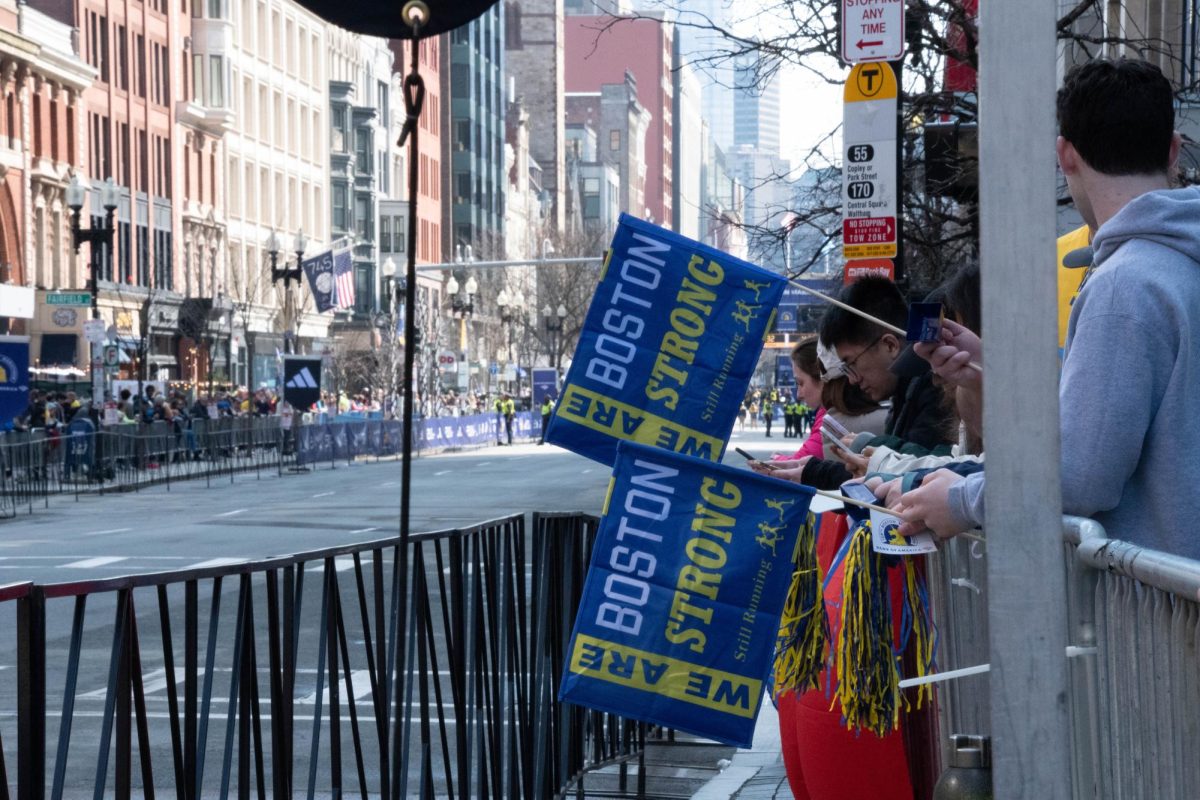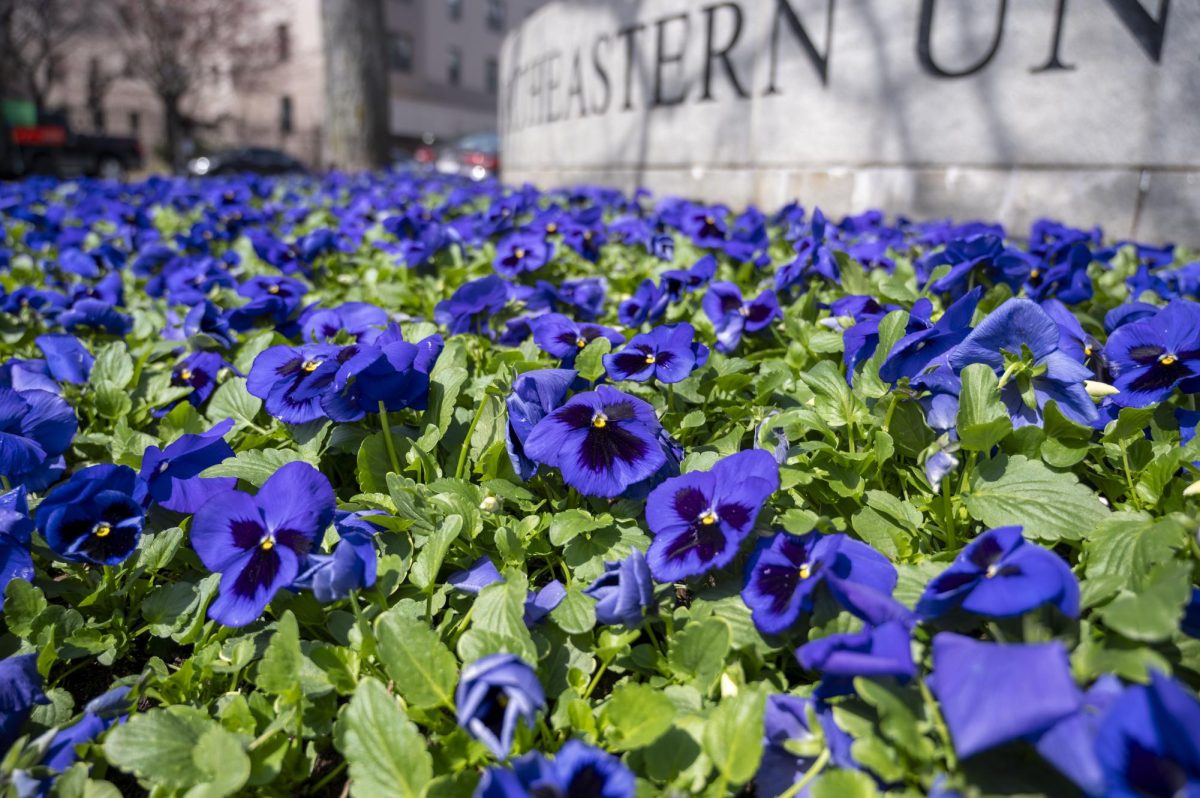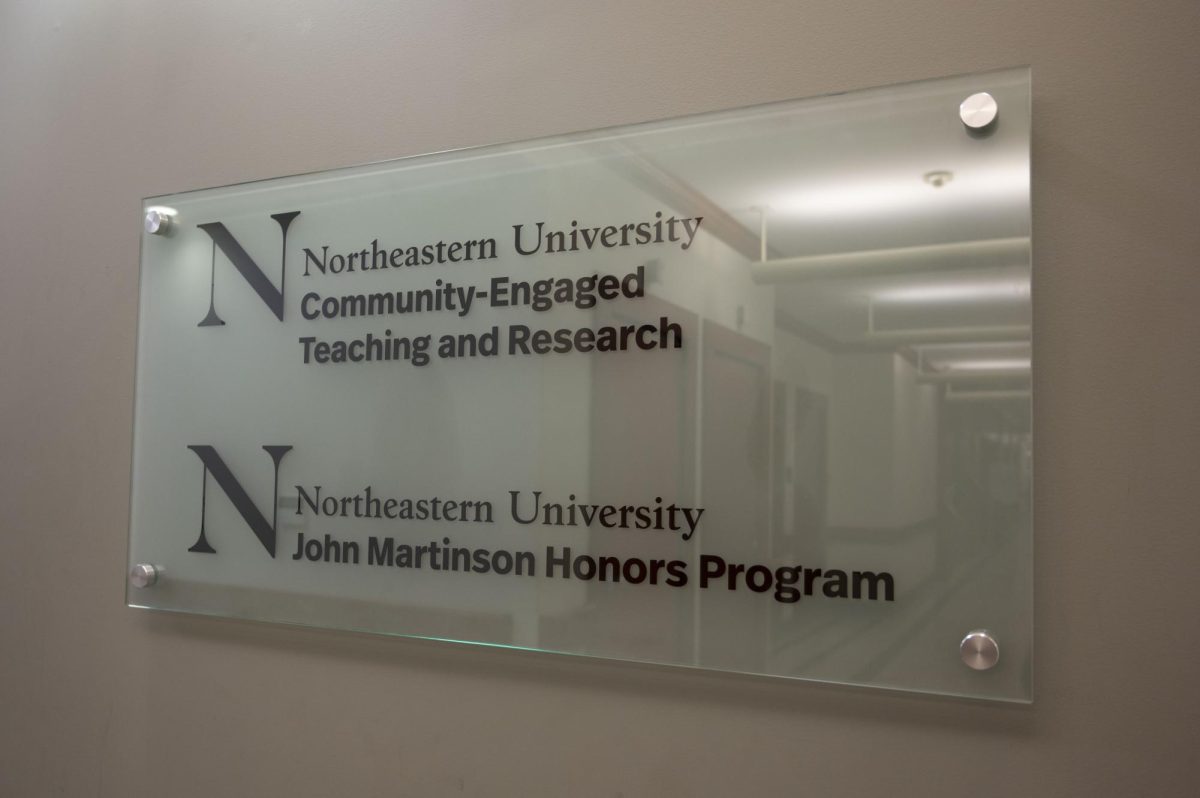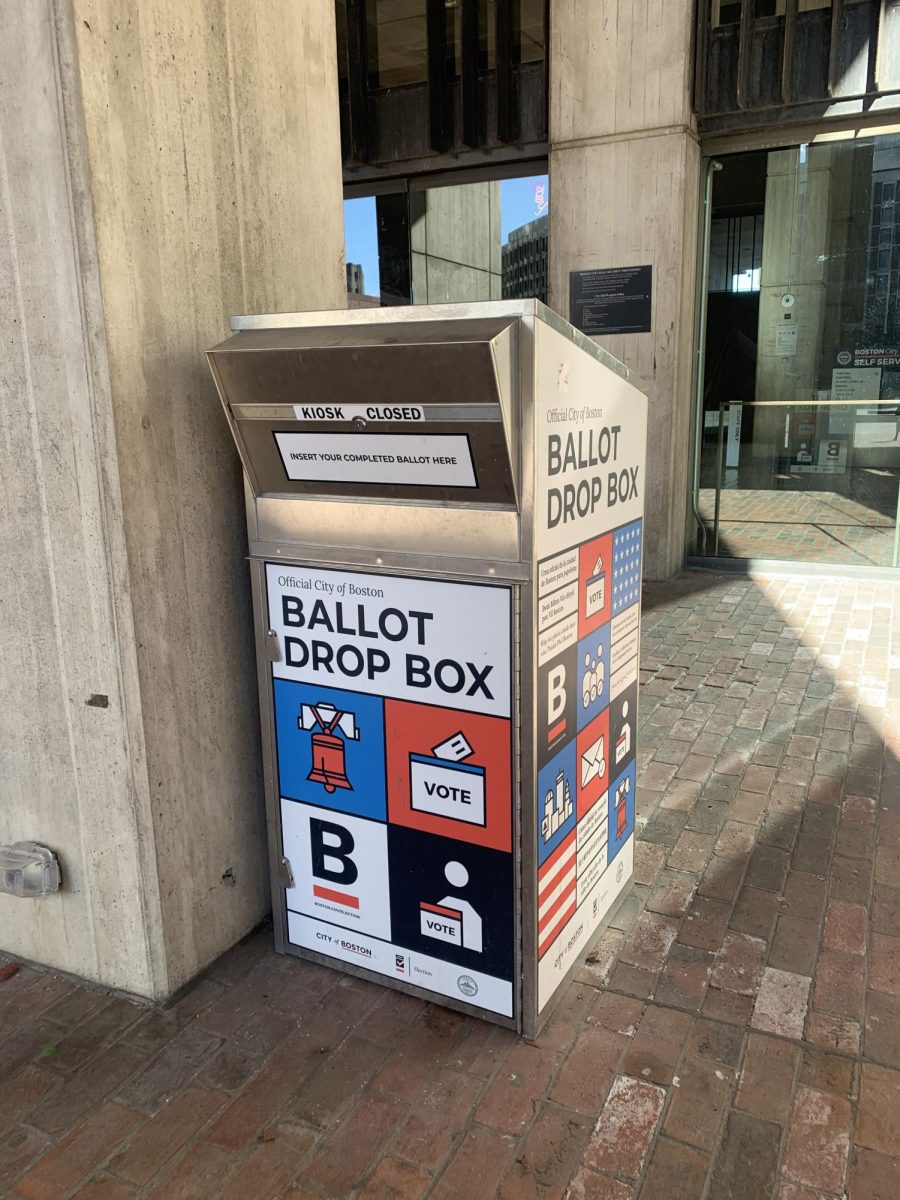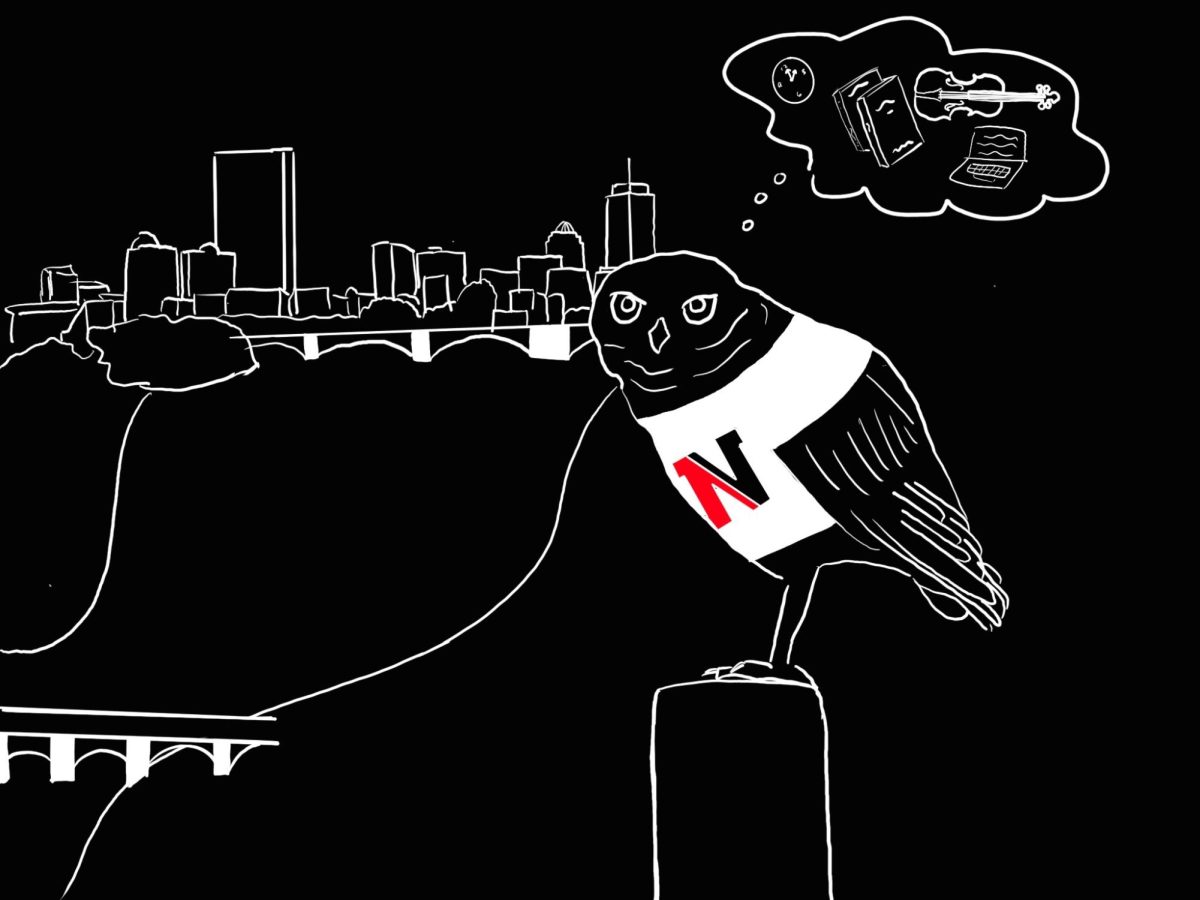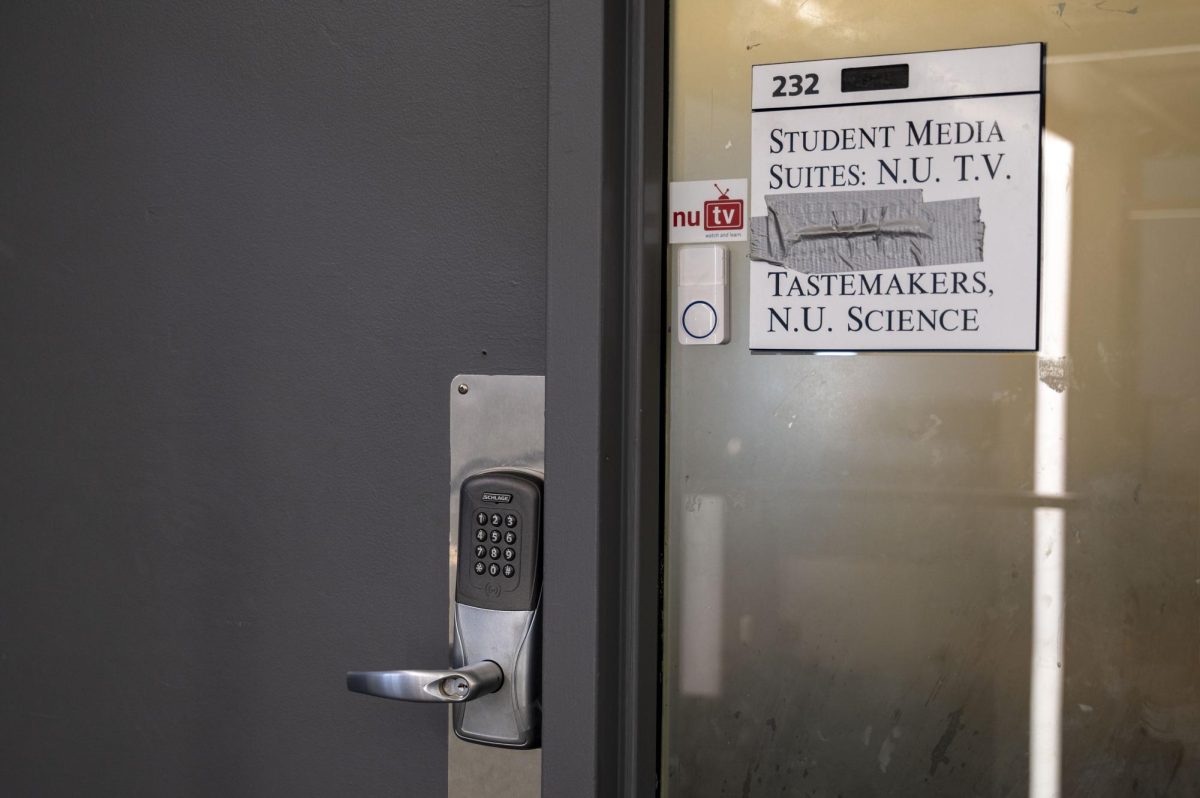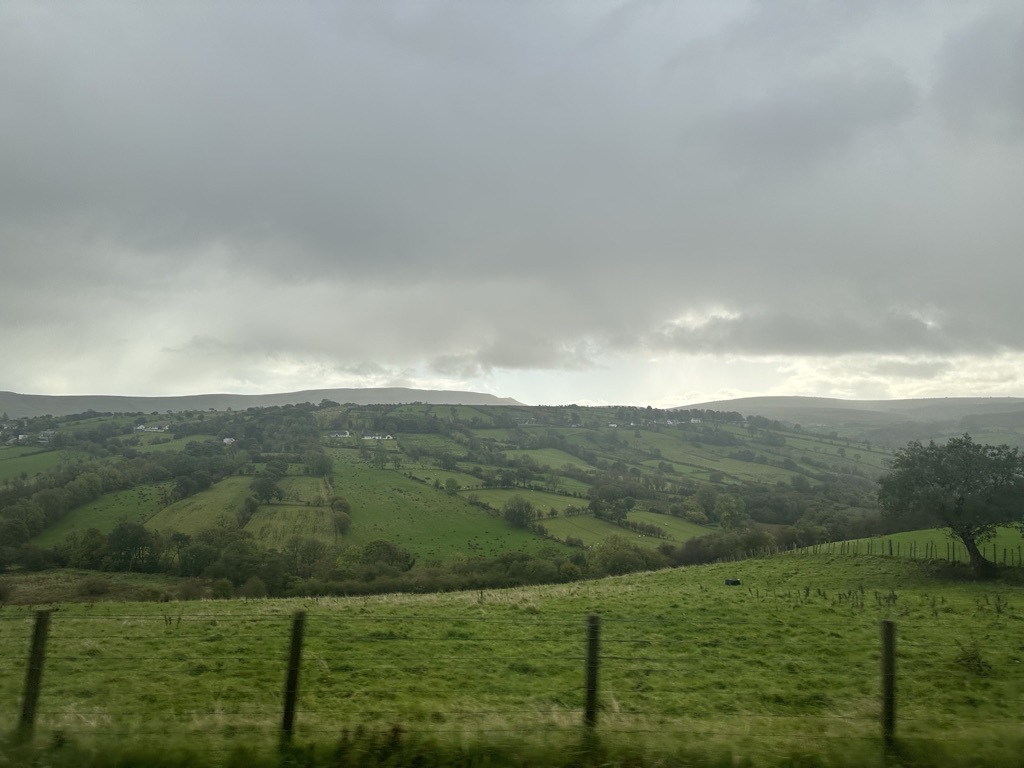By Taylor Dobbs, News Staff
When the bombs went off, Patriots’ Day took on a new meaning. It wasn’t a novel day of remembrance of days passed, heroes in tri-cornered hats fighting an old war on old streets. It became a dark, gritty day. All of the history, the 116 marathons that came before, the records runners sought to break, were forgotten. Last-mile cheers of encouragement turned to screams of terror. Images of the blood-soaked sidewalks spread around the world. The marathon of which we are so proud became front page news for all the wrong reasons.
Now we’re left with a hole in our city. The emptiness of Boylston Street and the surrounding blocks is haunting. Only soldiers in uniform and SWAT officers with assault rifles mill around, keeping people out. We didn’t sign up to walk to campus past a guy in a bulletproof vest toting a gun we’d only ever seen in the movies. This doesn’t happen here. Not to us.
I spent Monday afternoon as close to the action as I could get. I walked the emptying streets with my camera, looking for I don’t quite know what. I’m a journalist, I thought. This is what we do – we run to what everyone is running away from and we record history as it happens. The reality was more confusing. Children were crying, people were desperately trying to reach their loved ones in the race. A runner named Steve, who didn’t know much about what happened, asked me to text his family. They were waiting for him near the finish, he said nonchalantly. I looked at him again, unsure how much I should say. As I sent the text, I wondered if the next thing I would tell this man, this stranger, might ruin his life.
Boston was another city. There were no loud, half-drunk college students cheering in the streets, there were no joyous hugs. There were far more “Thank God”s than there were “Congratulations.” The lucky families met their runners and, after hugs and collective relief, quietly left, trying to sneak away whole from the epicenter of pieces.
I went to the intersection of Boylston and Berkeley streets on Tuesday. It was getting dark, and the crowd was getting larger. Flowers, stuffed animals and T-shirts lay in front of a metal crowd control barrier. Hanging from the barrier were a string of American flags, some rosary beads and a marathon medal. Two girls brought more flowers. A stunned silence prevailed.
A gruff man – the picture of a seasoned New Englander – sat near the flowers with his dog. He looked tired, and after a while, he stood and beckoned the Massachusetts National Guardsmen who stood watch nearby.
“Will you guys watch this stuff?” he asked them. They nodded. As he left, I walked with him. His name was Ed Starbuck, and he said he was from Nantucket. The 13th generation of his family from there, he said with pride.
“It was very spontaneous,” he said. He got on the bus Tuesday morning to come to Boston and help. He brought the flags with him, and sewed a few of them together on the bus. They hung on the barrier over the center of Boylston Street, where thousands of runners never arrived Monday.
“I think people were walking around with flowers or something,” he said, “because I’ve got to tell you, it couldn’t have been any more than three or four minutes [after I hung the flags] before the first flowers showed up.”
He shook my hand and continued down Boylston Street, away from his day’s work. I stood there for a moment, watching the bustle of activity near the memorial in the fading light. Church bells nearby played “God Bless America.” As I started back down the street toward the barricade and the bomb site, a jogger came around the corner and ran past me down Boylston, seemingly unphased by the apparent detour or the mourning or the loss. She ran on, and I thought of the beautiful audacity I was surrounded by, and what Starbuck had said to me before he left.
“I’m going to be back tomorrow morning.”
Wednesday afternoon, businessmen rushed by on the sidewalk and hundreds more came to pay tribute to the dead and injured; Starbuck was there.
–Taylor Dobbs can be reached at [email protected].



